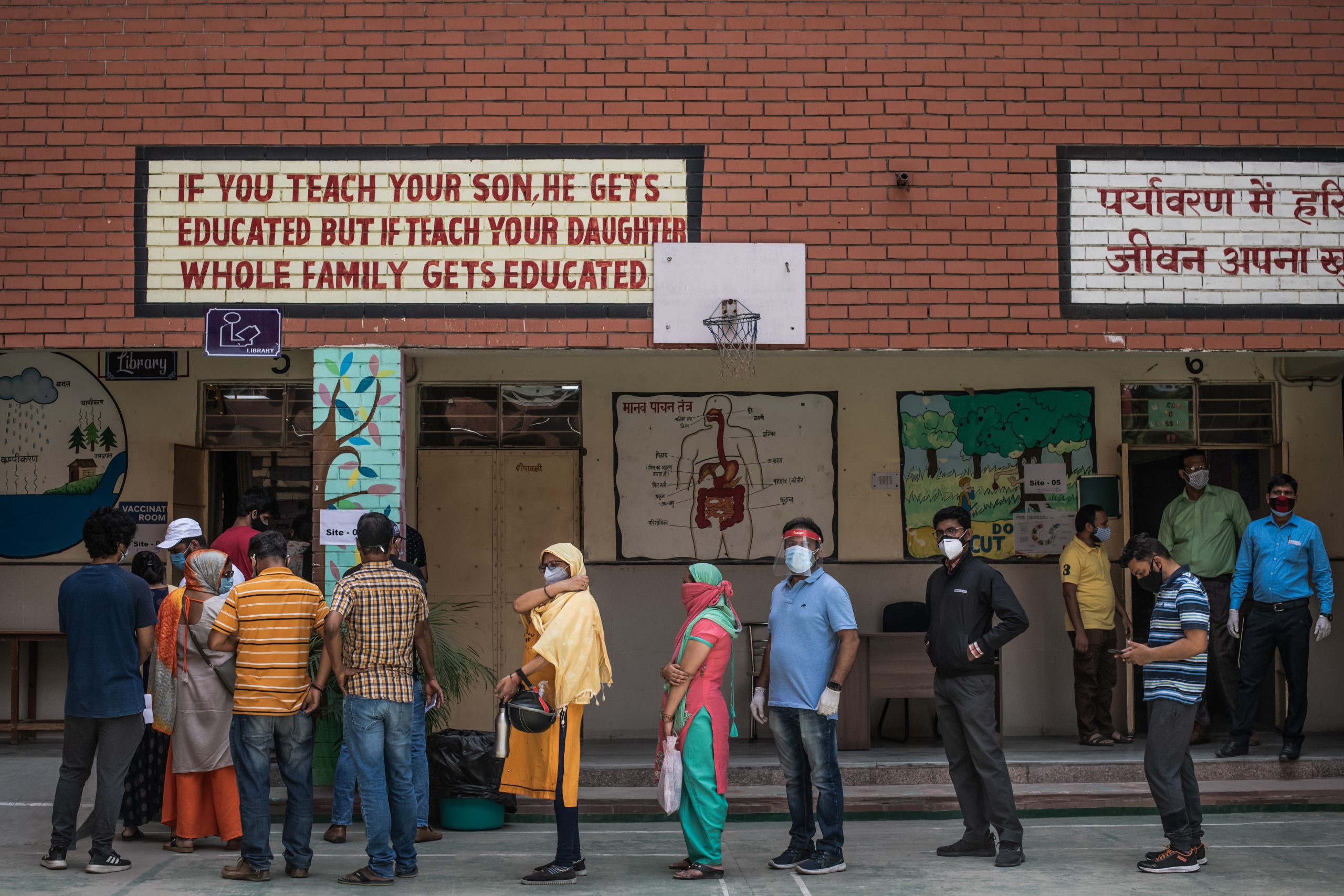
Whenever I’ve sat out on my balcony over the past few days, the lockdown stillness an extra layer around the heat haze enveloping the city, I’ve felt that the silence has been pierced less frequently by the ululation of ambulance sirens.
My senses have not misled me. In the Indian capital of Delhi, where a ferocious second wave of the pandemic had strained hospitals and crematoriums for weeks, the number of daily Covid-19 cases was declining. From a peak of 28,300 new cases on 20 April, the number fell to 3,846 on 19 May.
The same trend was evident across the country. On 21 April, India recorded a total of 314,835 new cases – the highest single-day tally for any country since the beginning of the pandemic. By 2 May, the number was 401,993. From this peak, however, the number started falling. On 16 May, the country – more than half of it under varying degrees of confinement – recorded 282,086 new cases. A corner seemed to have been turned.
It is a false dawn.
***
As the world knows from its experience of the past 18 harrowing months, lockdowns are effective in breaking the chain of transmission and bringing down case numbers in the short term. But lockdowns are also a temporary fix and the only real solution is vaccination. The situation in the US and the UK, where things are now relatively under control after the roll-out of aggressive vaccination drives, suggests as much.
In the US, 49 per cent of the population has received one dose of the vaccine, and 39 per cent has been fully inoculated. In the UK, 56 per cent has had one jab, and 32 per cent has been fully vaccinated.
In India, 11 per cent of the population has had one dose of the vaccine, while merely 3 per cent of its population is fully vaccinated. Worse, no surge in vaccination is in sight. In April, India administered an average of 3 million doses a day. Over the first 17 days of May, the average has plummeted to 1.73 million a day, due to an acute and alarming shortage of vaccines.
How did India get here? It is a story of carelessness and complacency, of delusion and denial.
India began its vaccination drive – then limited to healthcare workers and front-line staff – on 16 January. Up until 1 April, no one below the age of 60 was eligible for vaccination. By then, the second wave was on its way to becoming a tsunami. The realisation that India simply did not have enough vaccines to supply its people struck home too late.
Millions of people between the ages of 45 and 59 are now struggling to find a second dose. In Delhi and Mumbai, many centres that opened for the vaccination of people between 18 and 44 years old – a group that became eligible on 1 May – have shut because they are out of vaccines.
Disregarding warnings from scientists, politicians in charge of policy- and decision-making believed India had conquered the virus by the beginning of 2021. The nation had “saved humanity from a big disaster by containing corona effectively”, Prime Minister Narendra Modi told the World Economic Forum in Davos in January.
Assuming that the vaccination process could afford to be long and leisurely, the government only belatedly released money to the two domestic vaccine manufacturers to heighten capacity. It refused to import vaccines (it is scrambling to do so now), in order to burnish its self-proclaimed image of Atmanirbhar Bharat (Self-reliant India). And it exported vaccines to dozens of countries to strengthen the perception of it being a global benefactor. The result is the mayhem we are seeing now.
***
In Delhi, posters protesting Modi’s management of the national calamity have appeared. In the eastern state of Bengal, his Bharatiya Janata Party lost a crucial state election in May. The resentment is palpable, and growing. But it is too early to speculate whether any of this will sway his substantial core voter base and have an impact on the general elections in 2024. Three years is a long time for the national mood to change. Modi has overcome adversity too many times to be written off and the lack of a credible, national-level opposition only strengthens his hand.
[See also: Will the BJP’s defeat in West Bengal prove a turning point in Indian politics?]
***
In its messaging, the government is projecting a bullish, decisive front. A statement from the health ministry on 21 May said the country will be in a position to vaccinate at least all of its adult population by the end of the year. The government claims two billion jabs will be available between August and December to achieve this target. Yet this estimate makes certain assumptions: that the two indigenous vaccine makers will increase manufacturing by many times; that Sputnik V, the Russian vaccine in the market, will be abundantly available; and that five imported vaccines – all undergoing clinical trials and none yet approved for use – will be widely accessible. “It assumes that every vaccine will succeed and that every vaccine will ramp up to its maximum capacity by August, which, I think, is extremely unlikely,” Gagandeep Kang, a vaccine expert and professor at Christian Medical College, Vellore, told the Economic Times.
And what of administering doses? India gave 4.5 million jabs on 5 April – the highest any country has ever managed on a single day. To fulfil the government’s ambition, India will need to administer about nine million doses every day between August and December.
What has happened so far hardly inspires confidence. In the short- and medium-term, the situation looks irredeemably bleak.
Soumya Bhattacharya is a leading Indian journalist and the author, most recently, of the novel, “Thirteen Kinds of Love” (HarperCollins India)
[See also: The accountability crisis behind India’s Covid-19 surge]



